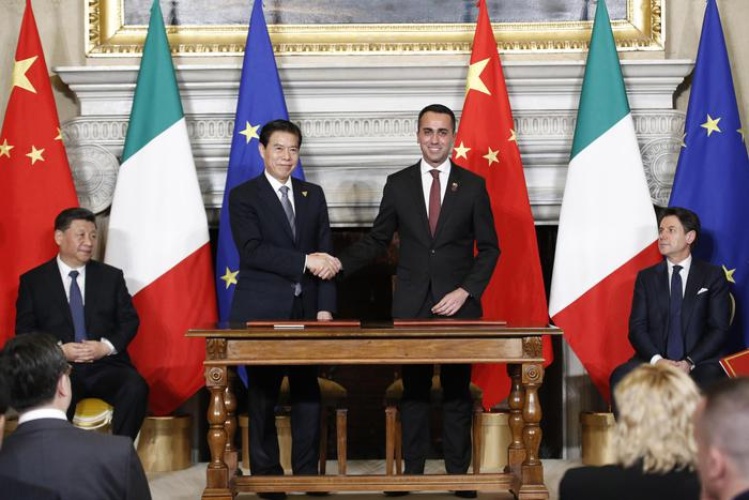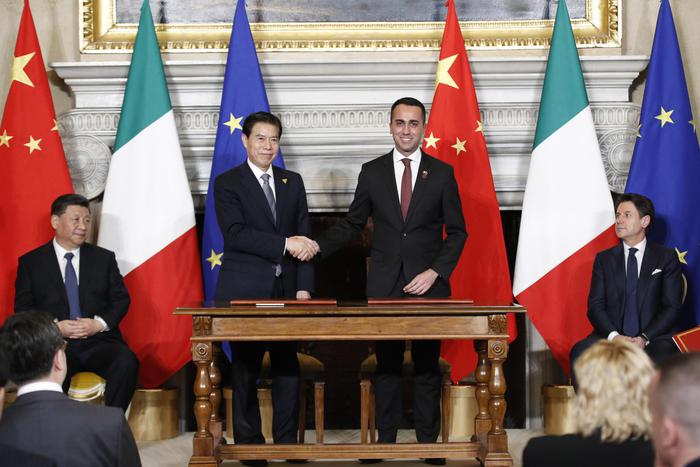Italy’s signing of a “non-binding” protocol to take part in the global investment program has raised concerns among the nation’s Western allies, including the US and the EU, regarding China’s growing influence and global power.
Chinese President Xi Jinping and Italian Prime Minister Giuseppe Conte both attended a ceremony in Rome for the signing of 29 memoranda of understanding which amount to billions of euros.
Also present at the ceremony were China’s chairman of the National Development Commission He Lifeng and Italian co-deputy prime minister and Minister of Economic Development Luigi Di Maio of the Five Star Movement (M5S).
Though the program’s official name is the Belt and Road Initiative (BRI), it is described as a modern Silk Road which, just like the ancient trade route, aims to connect China to Europe.
The BRI involves Chinese funding for major infrastructure projects around the world, in order to speed Chinese goods to markets both near and far.
The project has already financed trains, roads, and ports, with Chinese construction firms given lucrative contracts to connect ports and cities, funded by loans from Chinese banks.
With Italy having signed up to the program, China’s Communications and Construction Company will be given access to the northern port of Trieste to link central and eastern Europe.
China will also be involved in developing the port of Genoa.
Critics have described Beijing’s ambitious maritime, rail and road scheme as “predatory”, claiming it overwhelmingly favours China.
However, Beijing has emphasised the mutual benefits of the $1 trillion project.
“China wants commercial exchanges to go both ways and for investment to flow in both directions,” Xi said on Friday.
Italian companies to benefit include the Ansaldo group, which landed a contract for making turbines, and the Danieli group, which sealed a €1.1 billion deal to build an iron and steel plant in Azerbaijan.
The deals also foresee the opening up of the Chinese market for Italian agricultural products such as oranges, as well as a partnership between Chinese tourism giant Ctrip and Italian airports.
Cultural connections including town twinnings are also a possibility.
Di Maio responded to concerns over Italy’s involvement in the project by saying it won’t affect Rome’s relations with its current allies.
“Italy has arrived first on the Silk Road and therefore other European countries at this moment have taken a stance on our trade decisions,” he said.
“They have taken a critical view and they have the right to this opinion.
“We do not want to override our European partners. We firmly remain in the Euro-Atlantic alliance and we remain allies of the United States in NATO.”
However, Di Maio’s coalition partner, co-deputy prime minister Matteo Salvini, isn’t as convinced about Italy’s involvement in the project.
Salvini, who heads the far-right League, was absent from all official ceremonies related to Xi’s visit, declaring he did not want to see foreign companies “colonising” Italy.
The project is yet another issue the coalition government has failed to agree on, causing further tensions among its members.












